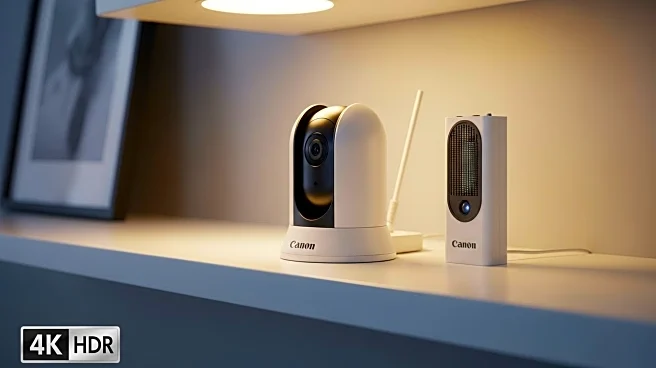What's Happening?
Smart home technology, particularly security devices and sensors, is proving effective in detecting and managing pest issues such as roaches and mice. These devices primarily focus on monitoring temperatures, doors, and windows but can also detect pests using passive infrared technology. This technology allows sensors to detect infrared light emitted by nearby objects, including pests like cockroaches. The sensitivity of these sensors means they can be triggered by small movements, such as a cockroach crawling across them. While these sensors are typically placed near doorways and windowsills, they can inadvertently detect pests, providing homeowners with alerts. However, the effectiveness of these devices in pest management varies, and they are not a substitute for professional pest control services.
Why It's Important?
The integration of smart home technology in pest management highlights the growing versatility of these devices beyond traditional security functions. This development is significant for homeowners seeking to enhance their pest control measures without relying solely on chemical treatments. The ability of smart sensors to detect pests can lead to early intervention, potentially reducing the severity of infestations. Additionally, this technology can provide peace of mind to homeowners by offering real-time alerts and monitoring capabilities. However, it is crucial to recognize the limitations of these devices and the importance of professional pest control services for comprehensive management.
What's Next?
As smart home technology continues to evolve, we can expect further advancements in sensor capabilities and integration with other smart devices. This could lead to more sophisticated pest detection systems that offer enhanced accuracy and reliability. Homeowners may also see improvements in app functionalities, allowing for better customization of alerts and sensor settings. The ongoing development of AI and machine learning could further refine these systems, enabling them to distinguish between different types of pests and provide tailored responses. Collaboration between tech companies and pest control experts may also emerge, offering integrated solutions for pest management.
Beyond the Headlines
The use of smart home technology in pest management raises ethical considerations regarding privacy and data security. As these devices collect and transmit data, ensuring the protection of personal information is paramount. Additionally, the reliance on technology for pest control may lead to reduced human intervention, which could impact traditional pest control industries. The cultural shift towards tech-driven solutions also reflects broader societal trends in automation and convenience, potentially influencing consumer expectations and behaviors.









